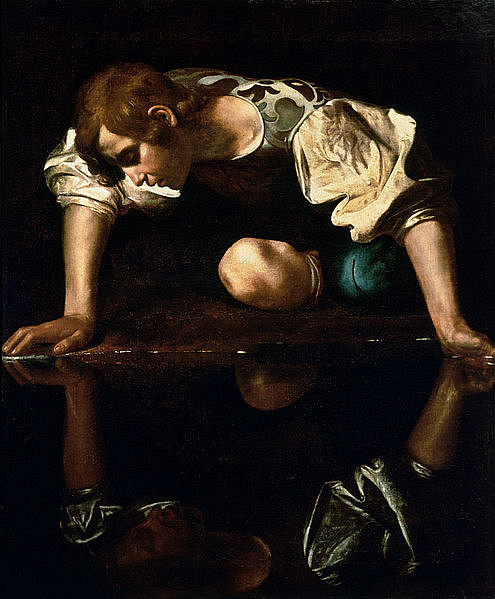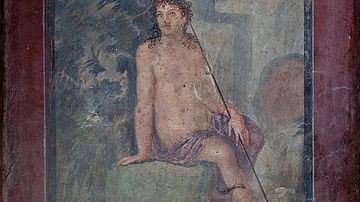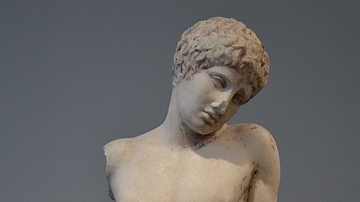
Narcissus is a figure from Greek mythology who was so impossibly handsome that he fell in love with his own image reflected in a pool of water. Even the lovely nymph Echo could not tempt him from his self-absorption. Narcissus' name lives on as the flower into which he was transformed and as a synonym for those obsessed with their own appearance.
Narcissus & His Reflection
Narcissus was born in Thespiae in Boeotia, the son of Cephissus (the personification of the Boeotian river of the same name) and the nymph Liriope. His mother was warned one day by the seer Teiresias that her son would live a long life as long as 'he never knows himself.' As he reached his teenage years, the handsome youth never found anyone that could pull his heartstrings, indeed, he left in his wake a long trail of distressed and broken-hearted maidens, and one or two young men fell by the wayside too. Then, one day, he chanced to see his own reflection in a pool of water and, thus, discovered the ultimate in unrequited love and fell in love with himself. Naturally, this one-way relationship went nowhere, and Narcissus, unable to draw himself away from the pool, pined away in despair until he finally died of thirst and starvation. Immortality, at least of a kind, was assured, though, when his corpse (or in some versions the blood from his self-inflicted stab wound) turned into the flowers which, thereafter, bore his name.
Narcissus & Echo
Another version of the myth appears in the work of the Roman writer Ovid. In this telling, Narcissus is as handsome as ever but cruelly refuses the advances of Echo. The lovely nymph, heartbroken, wastes away and dies with only her voice remaining to echo her plight. As a punishment for his neglect, Narcissus is then killed. Another version has Echo punished by Hera because she kept the goddess distracted with stories while the lovers of her husband Zeus, the mountain nymphs, escaped Mt. Olympus without notice. This explains why Echo could only repeat what others said to her. It is Echo in this form that Narcissus comes across one day while hunting deer in the forest. After a useless exchange of repeated words and statements, Echo tries to embrace the youth, but he rejects her and dashes off back home. Echo then pines away in the forest so that her body eventually perishes and only her voice remains.
Ameinius & Artemis
Other stories which diverge from the original myth have Narcissus, like with the Echo story, play the role of a mean rejector of suitors. One of the youth's most ardent admirers was Ameinius, but Narcissus merely sent him a sword to do away with himself, which he did. On dying, Ameinius cursed the object of his unbound affections and asked the gods to punish him. Artemis responds to the request - perhaps showing a dislike for rival hunters – and compels Narcissus to tragically fall in love with his reflection.
Narcissus in Art & Culture
Unlike for Greek artists, the Roman version of Narcissus and Echo was a very popular subject in Roman art and is seen in almost 50 wall paintings at Pompeii alone. Renaissance art also took a shine to Narcissus; the story involving light and reflection proved irresistible to Caravaggio, who captured the myth in his celebrated 16th-century CE oil painting. Finally, his name lives on today in psychoanalysis where narcissism refers to the personality disorder of excessive self-admiration and preoccupation with one's appearance.






